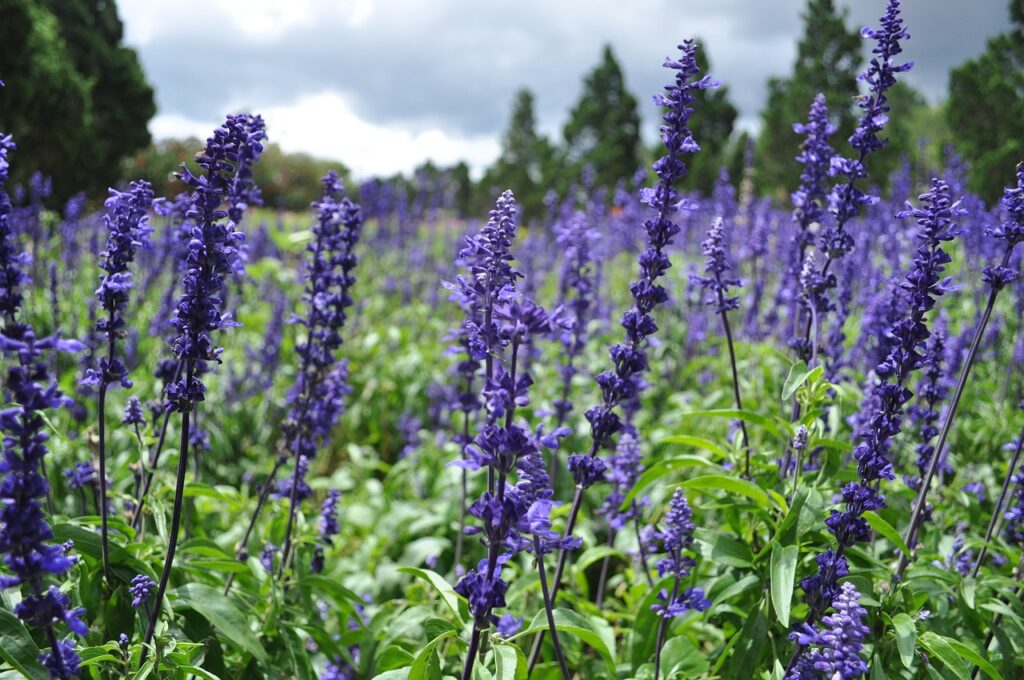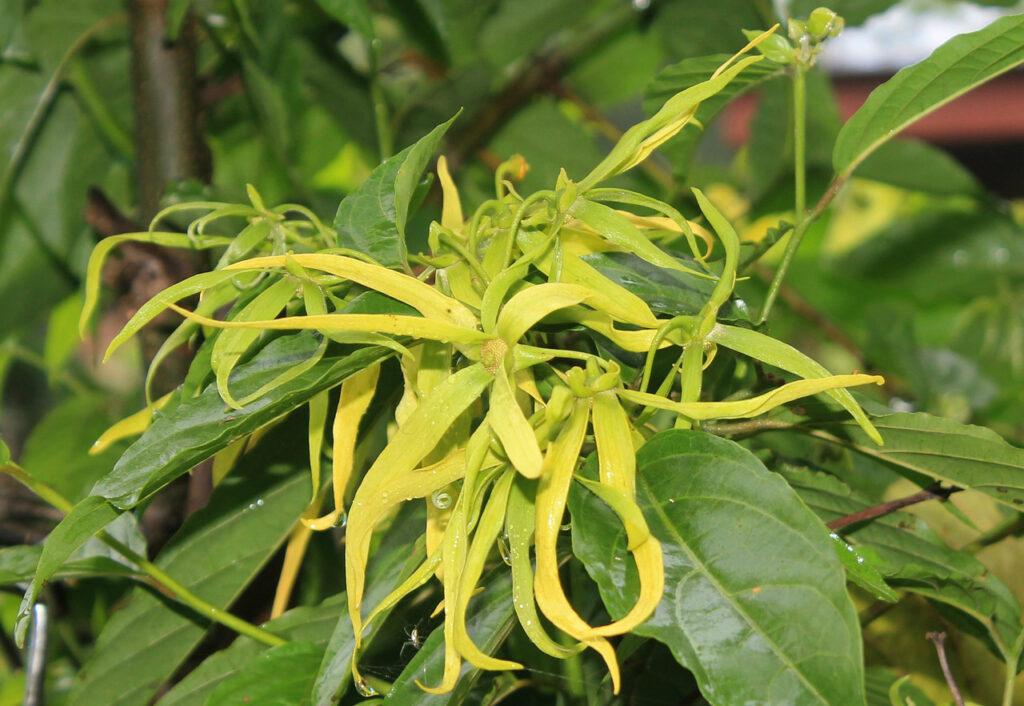Where to Buy Essential Oils:
If you’re exploring essential oils for the first time, or even if you’ve been using them for years, you’ve likely wondered where to buy essential oils that are truly worth your money. The internet is overflowing with advice, claims, and mixed reviews. Some of it is helpful, and some can be misleading.
- New to Buying Essential Oils?
- Are You a More Seasoned Buyer?
- 4 Common Misconceptions Among Essential Oil Users
- Keep a Clear and Open Mind
- As You Use and Buy Oils, You Will Notice Quality Differences
- A Beginner’s Checklist: How to Choose Quality Essential Oils
- The Research Begins
- Bringing it All Together
- Quality Essential Oils: FAQs
- 1. Why is the quality of essential oils so important?
- 2. Can I buy essential oils from any store?
- 3. How can I verify the quality of an essential oil before purchasing?
- 4. Why do essential oil prices vary so much?
- 5. Can I use essential oils internally?
- 6. Are essential oils safe during pregnancy?
- 7. How should I store my essential oils?
- 8. Are essential oils safe for pets?
- 9. How long do essential oils last?
- 10. How do I choose a carrier oil to mix with essential oils?
The truth is, not all essential oils are created equal. Quality varies widely depending on the brand, sourcing practices, and how the oils are processed. That’s why taking time to research before you buy makes all the difference.
Whether you use oils for aromatherapy, natural cleaning, or daily wellness, understanding what separates high-quality oils from lower-quality ones helps you make confident, informed choices. If you’re asking this question, it’s a good sign. It means you already recognize that purity and sourcing matter.
New to Buying Essential Oils?
Over the past decade, essential oils have become a household staple. Their popularity skyrocketed as more people discovered their natural benefits, and although the trend has cooled slightly, they still hold a valued place in many homes. Once marketers recognized the demand, essential oil companies began popping up everywhere.
Having more choices can be a good thing, but it also makes it harder to know which brands you can trust. Like most health and beauty industries, more competition brings more marketing noise, inconsistent quality, and a wide range of prices. Some brands are honest about their sourcing and purity, while others rely on clever branding or sales tactics.
If you’re new to essential oils, don’t let all the conflicting information overwhelm you. The key is to find pure, trustworthy oils without getting stuck in endless research. It’s easy to fall into “analysis paralysis,” but you don’t have to. This guide is here to help you move forward with confidence.
When starting your collection, it’s smart to invest in quality right from the beginning. Think of it like buying your child their first musical instrument; you don’t need the most expensive one, but it should be good enough to inspire confidence and last. In this guide, you’ll learn which brands are reliable, what to look for before purchasing, and how to choose oils that will serve you well long term.
Living healthier and calmer doesn’t have to be complicated. The right oils can make that lifestyle more achievable every day.
Are You a More Seasoned Buyer?
Do you remember the excitement of discovering essential oils for the first time? Maybe you started with a simple set or your first diffuser and couldn’t wait to experience those refreshing, natural scents. Years later, many of us still enjoy using oils for laundry, skincare, and around the home because we’ve seen their lasting benefits.
As someone more experienced, you’ve likely come across plenty of discussions about brands, certifications, and purity standards. You’ve probably also heard mixed opinions about multi-level marketing (MLM) oil companies compared to independent brands. With so many viewpoints, it can be challenging to separate fact from marketing.
You already know the benefits essential oils can offer and how they fit into your lifestyle. The next step is refining how you choose which ones to buy. Over time, your preferences might shift toward companies that prioritize purity testing, transparency, or sustainable sourcing.
In the following sections, we’ll explore what truly matters when evaluating essential oil brands today so you can continue choosing products that align with your values and deliver consistent quality.
4 Common Misconceptions Among Essential Oil Users
There are a lot of misconceptions among those who regularly use and purchase essential oils. While some of them may happen to be true from time to time, remember what you learned in science class: Correlation doesn’t equal causation.
#1 – “Higher-priced oils are better quality.”
FALSE
As with almost anything else, just because the price of any particular essential oil may be higher than others does not mean that the quality is superior in any way. Higher-priced oils may or may not be better than their competitors. So, price alone cannot be relied on as a way to verify quality.
- In some cases, more expensive oils may actually be of inferior quality without their customers ever knowing that they’re getting less than they’re paying for.
- As you shop for various scents and kinds of oils for your own personal use, do not assume that higher-priced oils equal higher quality.
Along these same lines, it goes without saying that if you see particular brands consistently priced far below other brands, expect quality to be lacking. The idea here is that you need to do your due diligence when you consider purchasing oils from any company. Do some research and find out about how they define their quality-related claims.
#2 – “As long as my oil is “Therapeutic Grade” or “Food Grade” it’s of superior quality.”
FALSE
Therapeutic Grade
There’s actually no such certification as “therapeutic grade,” and there’s also no reputable governing body that has implemented any kind of certification process whatsoever.
- This “quality seal” is purely a deceptive marketing ploy that holds no significance in regard to the quality of the essential oil in question.
- Any company that claims to be therapeutic grade may be referring to their own internal quality guidelines and assessments, but bear in mind that these claims by name are not regulated or verified by any governing body.
- “Therapeutic grade” may also refer to general specification guidelines set forth by AFNOR (Association Francaise de Normalization). The key here is that AFNOR doesn’t regulate any company making this claim; they just set forth specifications for companies to follow as a guide.
Before you jump to buy that “therapeutic grade” essential oil, there are other things you should consider as well, which we’ll address later. The Phrase “therapeutic grade” is absolutely not any sort of “silver bullet” when it comes to the quality of your essential oil buying choices because it can mean whatever the seller wants it to mean.
It’s really about how each company, in particular, defines its use of the phrase and whether or not you’ll trust their adherence to those claims.
You may also see other grading systems like “A”, “B”, or “C”, “C” being the worst. Those designations also don’t have any concrete significance and aren’t regulated for quality either.
When it comes to essential oils, the quality of any given oil is also not merely based upon certain lab testing methods (MS/GC specifically) that some companies perform. Moreover, quality is determined by cultivation processes, harvesting, distillation, extraction, packaging, and other factors. That being said, companies that provide you with the MS/GC reports are taking an extra step to back up their quality claims, and that’s a plus.
All of this being true, that doesn’t mean that every single company using the phrase “therapeutic grade” is intentionally trying to deceive you. I would, however, like to see more transparency in this area in general.
Food Grade
The term “Food Grade“ basically means that the oil is “generally recognized as safe” for its intended food additive use (in small quantities).
You can view a list of “Food Grade”/”generally safe” additives here: FDA – Food for Human Consumption – Part 182: Substances Generally Recognized as Safe.
There are no regulated quality standards, only guidelines. Now, interpreting what exactly this means when it comes to choosing one particular brand over another is a different story. Remember, there is no grading or quality system in the essential oil industry. Thus, in the case of “food grade”, that simply means the oil has been redistilled to make it more suitable and “safe for human consumption”.
For example, peppermint oil with a “Food Grade” designation may have a sweeter candy taste than wholly distilled peppermint essential oil because the redistilled “Food Grade” oil has been distilled again to separate out more specific qualities preferable for food additive use.
Therefore, food-grade oils are actually less pure than essential oils that do not have this designation because they’ve been redistilled and even blended or diluted. For example, “100% Pure Food Grade” may simply mean that 5% of the blend is redistilled essential oil, whilst the other 95% is regular everyday vegetable oil. It gets a lot more complicated than that, but this is a simple way to comprehend it.
- Some companies and sales consultants may casually recommend that oils be consumed for all manner of uses.
- Not only are those claims not regulated, but it’s downright irresponsible for anyone untrained to encourage someone to ingest essential oils, especially when that person has just been introduced to them.
- While some may ingest specific essential oils for various reasons, seek professional advice from a healthcare provider before doing the same.
There can be serious health risks from ingesting oils incorrectly or irresponsibly. Again, please seek advice from a trained and certified expert in the field before ingesting any kind of essential oil in its pure form.
#3 – “100% all-natural essential oils are the best.”
FALSE

I have an assignment for you. Whenever you’re watching TV, going grocery shopping, or gathering new coupons for yourself, be on the lookout for this deceptive “all natural” phrase. Oftentimes, when it comes to purchasing groceries, people tend to equate “all-natural” with organic, healthy, or high-quality.
In the food industry, all-natural doesn’t really mean anything special; it’s just another marketing ploy. Have you ever read an orange juice, butter, or egg label that says “all-natural”?
Of course, orange juice, butter, and eggs should be all-natural. Or at least they better be!
Claiming that something already natural is actually natural isn’t saying much at all.
We’re so bombarded with advertising and marketing that we don’t even realize it when companies are merely stating the obvious to us, and we don’t oftentimes wonder why they’re doing it.
- In the same way, in the essential oil industry, “100% all-natural” may not be that significant of a claim at all.
- For example, suppose you purchase an oil blend that’s not nearly as potent because it’s been diluted with weaker carrier oils. In that case, it can still claim to be “100% natural,” even though it falls reprehensively short of a pure essential oil.
As companies in this industry figure out how to gain an edge over their competitors, it’s sad to see how questionable marketing tactics are often utilized to gain extra profit. It’s also sad that these companies expect the customer to not know any better and, therefore, proceed with their deceptive strategies.
You can read two warning letters from the FDA sent to two very well-known essential oil companies here:
You will see that the warnings in the above letters are in reference to claims made by consultants and not claims made by the companies themselves.
These letters from the FDA are somewhat reassuring because, while advertising is quite convoluted in this industry, there are still many claims that are illegal to propagate. Specifically, these consultants made claims about their oils curing ailments, which is prohibited for any essential oil company marketing health products.
No bias is intended here regarding these companies themselves; it’s just another example of confusion in this industry, and it’s one worth reading about.
#4 – “As long as it’s all-natural, I can use it safely for whatever use I desire.”
FALSE
Most people familiar with essential oils who also choose to ingest them would agree that the above phrase is blatantly wrong. However, while they’d say they disagree with the idea that “anything natural is always safe,” they use their oils with the very same presupposition every time they ingest them.
I am not saying that anyone who ingests EOs is doing so irresponsibly. But what I am saying is that caution should be followed when doing so, especially for pregnant women or anyone with medical conditions. Absolutely do not ingest essential oils unless directed to do so by a healthcare provider or reputable medical professional.
Also, any kind of long-term treatment with essential oils should be done in partnership with a healthcare professional or certified aromatherapist. So, just because something is natural doesn’t mean that it isn’t toxic or will not eventually lead to toxicity over time.
You can read more about injury reports and analysis by clicking on the links below:
After reading the above reports, you will see how acute reactions with improper essential oil use aren’t actually rare at all.
- Those who desire to learn more about essential oils do so because they want to improve their health.
- Therefore, do not use oils haphazardly because serious complications can and do occur.
- While the essential oil journey is enjoyable and intriguing, remember that you’re dealing with highly concentrated plant compounds.
There is a right way and a wrong way to use essential oils. The best road to take on your essential oil journey is the one that’s paved with caution and filled with curiosity, not to mention a lot of fun as well.
Keep a Clear and Open Mind
Feeling a bit overwhelmed is completely normal. After learning about some of the most common misconceptions surrounding essential oils, it is easy to understand why choosing the right products can feel confusing. The good news is that awareness is the first step toward making better decisions.
There are many ways people can get sidetracked when buying essential oils, but the four points covered earlier are some of the most common. If you are feeling uncertain, that is okay. If you are feeling confident, that is even better. Either way, the goal is steady progress, not perfection.
When buying essential oils, the most important thing is to stay objective. Being objective does not mean doubting everything you read. It means taking the time to compare your options, ask questions, and look at the facts before deciding. There is rarely a need to rush a purchase, especially when it involves something that affects your health and home.
Compare several companies and see how each one measures up in transparency, purity testing, and sourcing practices. The more facts you gather, the easier it becomes to recognize real quality and avoid disappointment. Just try not to fall into the trap of overanalyzing. A thoughtful and balanced approach will always serve you better than endless research.
As your essential oil collection grows, you will probably purchase from more than one company. That is completely normal and often necessary to find the best oils for your needs. Along the way, you may encounter a brand that does not meet your expectations or be let down by one you used to love. Do not get discouraged. Quality can vary for many reasons, and occasional disappointments are part of learning what works best for you.
The key is to keep an open mind, keep learning, and continue refining your choices. With time and experience, you will develop a clear sense of which brands match your standards and values.
As You Use and Buy Oils, You Will Notice Quality Differences
Have you ever taken music or language lessons before? I remember the first time I sat down at a piano. I was thrilled and convinced I sounded great. Later, as I kept practicing and improving, I realized that what once seemed impressive was just the beginning. The same is true for essential oils.
When you first start using oils, everything feels new and exciting. But over time, as your experience grows, you will begin to notice subtle differences in quality, scent, and purity between brands. You might even look back one day and think, “I can’t believe I used to buy from that company,” or “How did I not notice the off smell in that oil?”
That learning process is completely normal. Every step, even the mistakes, teaches you something valuable. The most important thing is to enjoy the journey. Starting your essential oil collection is a proactive step toward better health and wellness. You may have questions, make a few missteps, or buy products that don’t quite meet your expectations, but all of that is part of learning what truly works for you.
As you gain more experience, your senses will sharpen, and you’ll naturally become more skilled at recognizing high-quality oils. Be patient with yourself, take your time comparing options, and keep your approach simple and enjoyable.
A Beginner’s Checklist: How to Choose Quality Essential Oils
There is currently no universal standard for verifying essential oil quality. This means you must rely on research, careful observation, and a few key signs that separate reputable brands from questionable ones. By paying attention to how a company sources, tests, and shares information about its oils, you can make far more confident choices.
Essential Oil Buyer’s Cheat Sheet
Consider purchasing from essential oil suppliers that meet most or all of the following criteria:
- Companies dedicated to supplying oils for aromatherapy practitioners and well-informed customers
- Businesses owned or managed by trained aromatherapy professionals or essential oil specialists
- Brands that maintain close working relationships with their distillers whenever possible
- Companies that provide GC/MS (Gas Chromatography/Mass Spectrometry) reports for each batch of oil
- Brands that willingly provide MSDS (Material Safety Data Sheets) upon request
- Reputable companies known for ethical practices and transparency
- Businesses with a long-standing reputation among professionals, such as aromatherapists, educators, or medical practitioners
- Suppliers offering wildcrafted, unsprayed, and certified organic products whenever available
Using this checklist will help you filter through the noise of marketing claims and find suppliers who care about both quality and customer trust. With time and attention, you’ll build a collection of oils you can feel confident and proud to use.
You can find a similar list at The East-West School for Herbal & Aromatic Studies. I modified their original list and created a few additions.
Now that you’ve reviewed the checklist above, remember that it’s only a guide. If you truly want to understand the quality standards a particular company follows, you may need to contact them directly. Many essential oil websites offer limited or vague details about sourcing and testing.
Don’t hesitate to reach out. Send an email or make a quick phone call to the companies you’re considering. Any trustworthy supplier will be happy to answer your questions and will likely appreciate your genuine interest in product quality. If you find brands that meet most of the criteria from the checklist, you can feel confident purchasing from them.
Keep in mind, however, that no single factor on that list should determine your purchase. Instead, view it as a scoring system; the more qualities a company meets, the better.
For example, take the word “organic.” Government regulations determine how this term can be used, and there are several categories, such as 100% organic, organic, and made with organic ingredients. Each label has different requirements, and only “100% organic” meets the strictest standard. In other words, there’s no perfect shortcut or magic label. Always look deeper than the marketing claims.
When you find suppliers that seem promising, reach out to them directly for clarification about their sourcing, testing, and certification processes. Reliable companies will always welcome those questions.
The Research Begins
By now, you should have a clearer understanding of how to identify higher-quality essential oils. You also know that nothing should stop you from exploring this world for yourself. Essential oils are meant to be enjoyed and used with confidence, and the knowledge you’ve gained here will help you make smarter decisions going forward.
With marketing tactics aside, you can now evaluate the claims made by different companies more effectively. To help you start your research, I’ve included a list of essential oil suppliers worth investigating further. Over time, I may expand or revise that list and provide individual reviews of specific companies as I continue to learn more.
The goal of sharing this list is simply to give you a few reliable starting points for your own research. This post isn’t meant to recommend one company over another. I want you to reach your own conclusions based on what matters most to you: purity, transparency, ethics, or sustainability.
If I find companies that consistently maintain high standards, I’ll highlight them in future posts or pages. Stay tuned, because we’re walking through this learning process together.
Above all, keep an open and objective mindset. Research thoroughly, ask questions, and test information for yourself, including what you read here at Enticingly Simple. The more you practice discernment, the more confident you’ll become in choosing oils that support your family’s health and well-being.
Essential Oil Companies to Consider
 Mountain Rose Herbs
Mountain Rose Herbs- Rocky Mountain Oils
- Snow Lotus
- Healing Natural Oils
- Aromandina
- Starwest Botanicals
- Aromatics International
- Aura Cacia
- Now Foods
- Lunaroma
- Stillpoint Aromatics
- Floracopeia
- Plant Therapy
*The above list is in no specific order.
Bringing it All Together
You now have what you need to make the best buying decisions when it comes to purchasing high-quality essential oils. Take what you’ve learned here and put it to good use! If you’ve made it through to the end of this post, you’ve demonstrated that you really do care about what products you use in your home.
You also have a helpful checklist of factors to consider when you purchase your oils, you’re better prepared to wade through deceptive marketing tactics, and you have a beginner’s list of great companies to consider researching for your purchases.
Quality Essential Oils: FAQs
Still have a few questions about buying essential oils? Below are some of the most common questions and clear, straightforward answers to help you shop confidently and safely.
1. Why is the quality of essential oils so important?
The effectiveness of an essential oil depends directly on its purity. High-quality oils are 100% pure and free from synthetic fillers, additives, or chemical fragrances. When an oil is pure, it performs as intended, whether for aromatherapy, skincare, or home use. Impure oils can cause irritation or reduce therapeutic benefits.
2. Can I buy essential oils from any store?
Essential oils are sold everywhere, from grocery stores to online marketplaces. However, not every retailer prioritizes quality. Always buy from reputable suppliers who clearly share details about their sourcing, testing, and purity standards.
3. How can I verify the quality of an essential oil before purchasing?
Look for these key signs of transparency and quality:
- Certified organic or wildcrafted labels
- The plant’s full scientific (Latin) name is on the bottle
- A clear purity statement or testing disclosure, such as GC/MS results
4. Why do essential oil prices vary so much?
Price differences depend on several factors, including how rare the plant is, the growing region, and the extraction process. Some plants require a large quantity of raw material to produce a small amount of oil, which naturally increases cost.
5. Can I use essential oils internally?
Essential oils are highly concentrated and can be unsafe to ingest without professional guidance. Only use oils internally if you’re working under the direction of a qualified healthcare practitioner who understands their proper use and dosage.
6. Are essential oils safe during pregnancy?
Certain oils are not recommended during pregnancy. Always consult a healthcare professional before using essential oils if you are pregnant or breastfeeding, and avoid applying oils directly to the skin without proper dilution.
7. How should I store my essential oils?
Store oils in tightly sealed, dark glass bottles in a cool, dry place away from sunlight and heat. Proper storage helps maintain their potency and extends their shelf life.
8. Are essential oils safe for pets?
Some essential oils can be toxic to pets, especially cats and birds. Always research individual oils before diffusing or using them near animals, and consult your veterinarian if you’re unsure.
9. How long do essential oils last?
Most essential oils last two to three years when stored correctly. Citrus oils tend to have a shorter shelf life, while wood and resin-based oils often last longer.
10. How do I choose a carrier oil to mix with essential oils?
The best carrier oil depends on your skin type and purpose.
- Dry skin: Sweet almond or avocado oil
- Oily or acne-prone skin: Jojoba or grapeseed oil
- All-purpose use: Fractionated coconut oil
Each carrier oil has unique properties, so experiment to find what feels best for your skin and needs.


